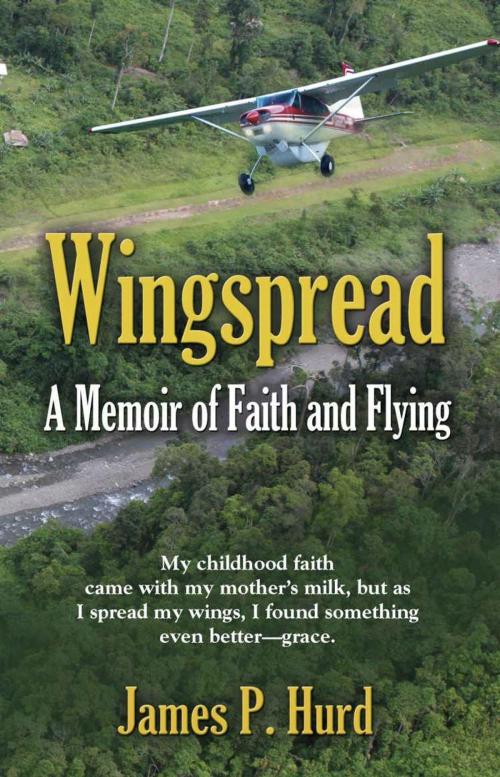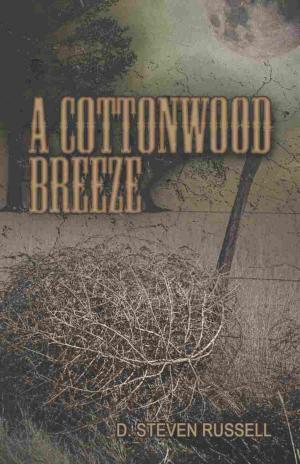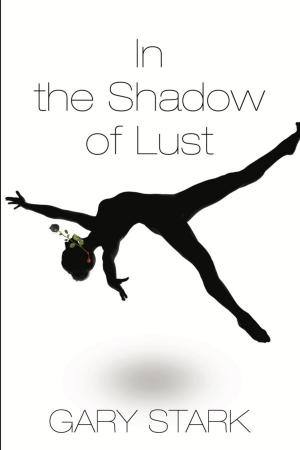WINGSPREAD: A Memoir of Faith and Flying
Nonfiction, Reference & Language, Transportation, Aviation, Piloting & Flight Instruction, Religion & Spirituality, Christianity, Missions & Missionary Work, Biography & Memoir, Religious| Author: | James P. Hurd | ISBN: | 9781632635693 |
| Publisher: | BookLocker.com, Inc. | Publication: | November 15, 2014 |
| Imprint: | Language: | English |
| Author: | James P. Hurd |
| ISBN: | 9781632635693 |
| Publisher: | BookLocker.com, Inc. |
| Publication: | November 15, 2014 |
| Imprint: | |
| Language: | English |
This book is for people trying to make sense of their childhood faith. For people who know what it means to be thrust out of a sheltered childhood into the broader world. For people who long for a life of adventure. The author invites you to venture with him as he "spreads his wings."
He grew up in Silver Acres Church - "Christian Fundamentalist, independent, and unaffiliated" - a church buttressed against the evil outside world. He tells how his mother read to him from the "Scofield" Bible, and from Dickens, Bryant, and Robert Louis Stevenson. Along with these, he fell in love with the world of his third-grade reader, the world of the East - a place unknown to him, where happy children sledded in the snow and golden autumn leaves hung from icy branches.
Hurd tells how his life dreams flourished in the ashes of his father’s dashed hopes. How his father loved aviation, but never flew. How his father contracted as a missionary to Nigeria. And how WWII's Pearl Harbor attack crushed these dreams.
Aviation, missions, and the East. After graduation, Hurd shunned every college west of the Mississippi. His Fundamentalist formation and his love of flying led him to Moody Bible Institute, Chicago, and to Moody-Wood Dale Airport, where he trained as a mission pilot.
He tells how the long train trip to Chicago severed him from his parochial past and thrust him into a foreign world. He met people about his same age, but pursuing very different "trips" - the Ivy Leaguer, the freshly-fledged Marine, the "trawler." He felt three years older by the time he reached Chicago.
He immerses the reader in the overwhelming feeling that is Chicago - mpossibly old buildings, industrial soot falling on one’s face, and what seemed to be cold, uncaring city people. But Chicago held one attraction - Moody-Wood Dale airport - where he piloted his "wild girlfriend" that first carried him into the skies.
After Moody, he flew airplanes for nine years in rural Latin America, and received a precious gift - Barbara - plus three adopted children. During all these years, he tried, but failed, to leave his childhood faith behind.
Hurd welcomes the reader aboard as he flies the mountain passes of southern Mexico, lands on 300-meter dirt airstrips in Honduras, and crisscrosses the vast jungles of Venezuela. He tells the stories of how he flew pastors, doctors and nurses, pregnant women, malaria victims, machetied men, and dead people, and the stories about some flights that provided opportunities for ending his career.
Finally, he shares the lessons he learned from writing - lessons about Fundamentalism, about flying, but mainly lessons about grace. He agrees with Kierkegaard: "Life must be lived forwards, but can only be understood backwards."
This book is for people trying to make sense of their childhood faith. For people who know what it means to be thrust out of a sheltered childhood into the broader world. For people who long for a life of adventure. The author invites you to venture with him as he "spreads his wings."
He grew up in Silver Acres Church - "Christian Fundamentalist, independent, and unaffiliated" - a church buttressed against the evil outside world. He tells how his mother read to him from the "Scofield" Bible, and from Dickens, Bryant, and Robert Louis Stevenson. Along with these, he fell in love with the world of his third-grade reader, the world of the East - a place unknown to him, where happy children sledded in the snow and golden autumn leaves hung from icy branches.
Hurd tells how his life dreams flourished in the ashes of his father’s dashed hopes. How his father loved aviation, but never flew. How his father contracted as a missionary to Nigeria. And how WWII's Pearl Harbor attack crushed these dreams.
Aviation, missions, and the East. After graduation, Hurd shunned every college west of the Mississippi. His Fundamentalist formation and his love of flying led him to Moody Bible Institute, Chicago, and to Moody-Wood Dale Airport, where he trained as a mission pilot.
He tells how the long train trip to Chicago severed him from his parochial past and thrust him into a foreign world. He met people about his same age, but pursuing very different "trips" - the Ivy Leaguer, the freshly-fledged Marine, the "trawler." He felt three years older by the time he reached Chicago.
He immerses the reader in the overwhelming feeling that is Chicago - mpossibly old buildings, industrial soot falling on one’s face, and what seemed to be cold, uncaring city people. But Chicago held one attraction - Moody-Wood Dale airport - where he piloted his "wild girlfriend" that first carried him into the skies.
After Moody, he flew airplanes for nine years in rural Latin America, and received a precious gift - Barbara - plus three adopted children. During all these years, he tried, but failed, to leave his childhood faith behind.
Hurd welcomes the reader aboard as he flies the mountain passes of southern Mexico, lands on 300-meter dirt airstrips in Honduras, and crisscrosses the vast jungles of Venezuela. He tells the stories of how he flew pastors, doctors and nurses, pregnant women, malaria victims, machetied men, and dead people, and the stories about some flights that provided opportunities for ending his career.
Finally, he shares the lessons he learned from writing - lessons about Fundamentalism, about flying, but mainly lessons about grace. He agrees with Kierkegaard: "Life must be lived forwards, but can only be understood backwards."















